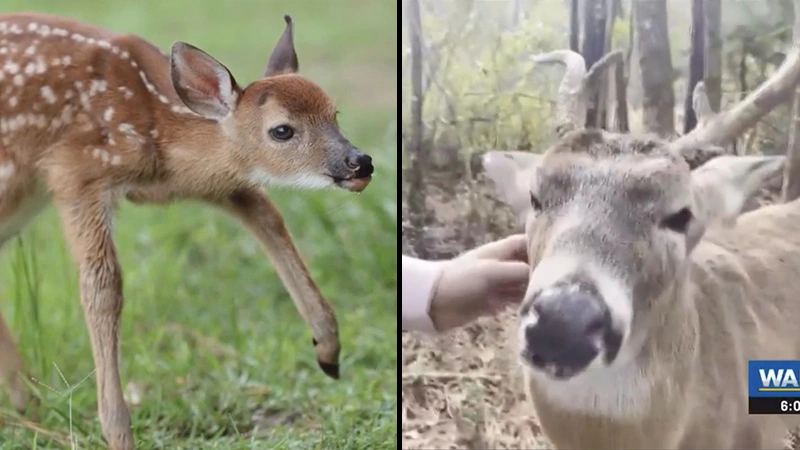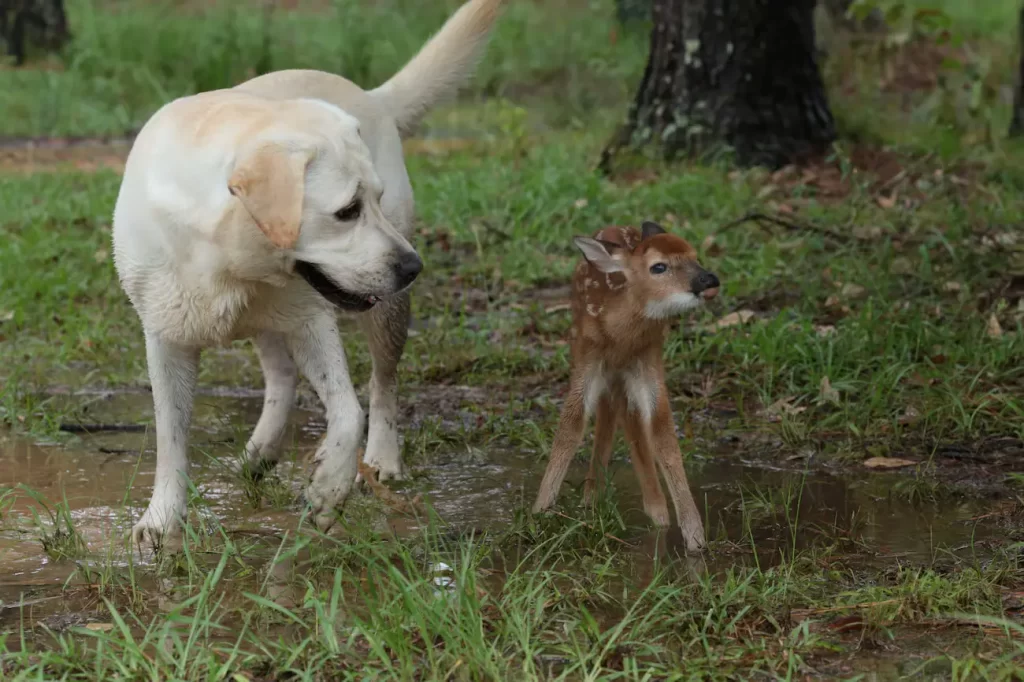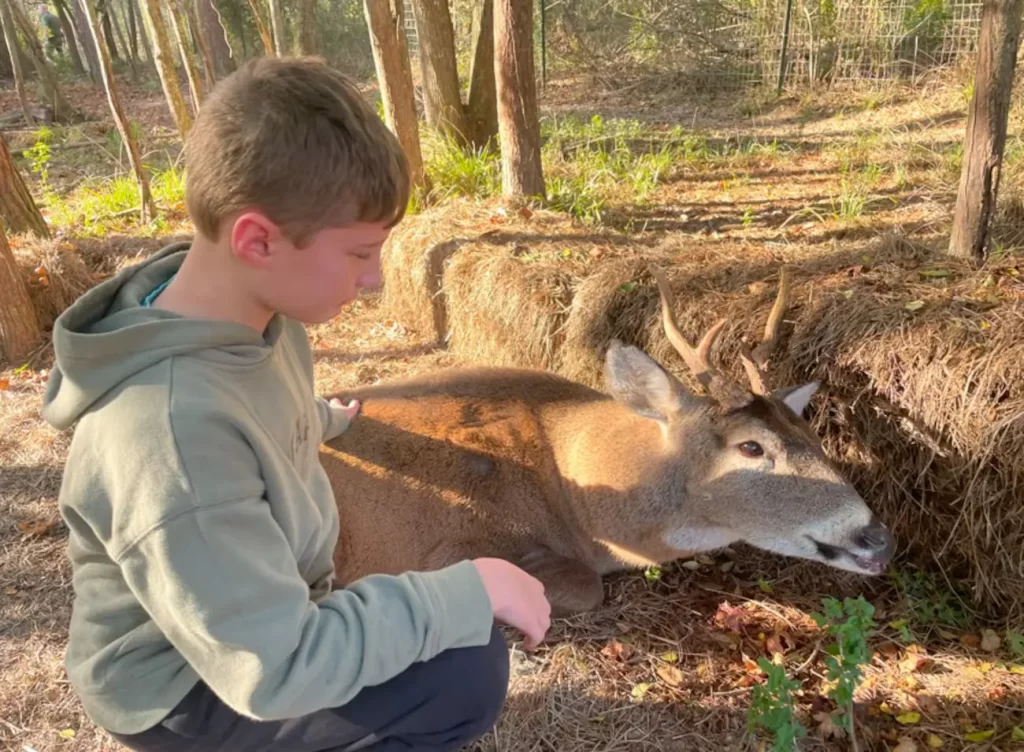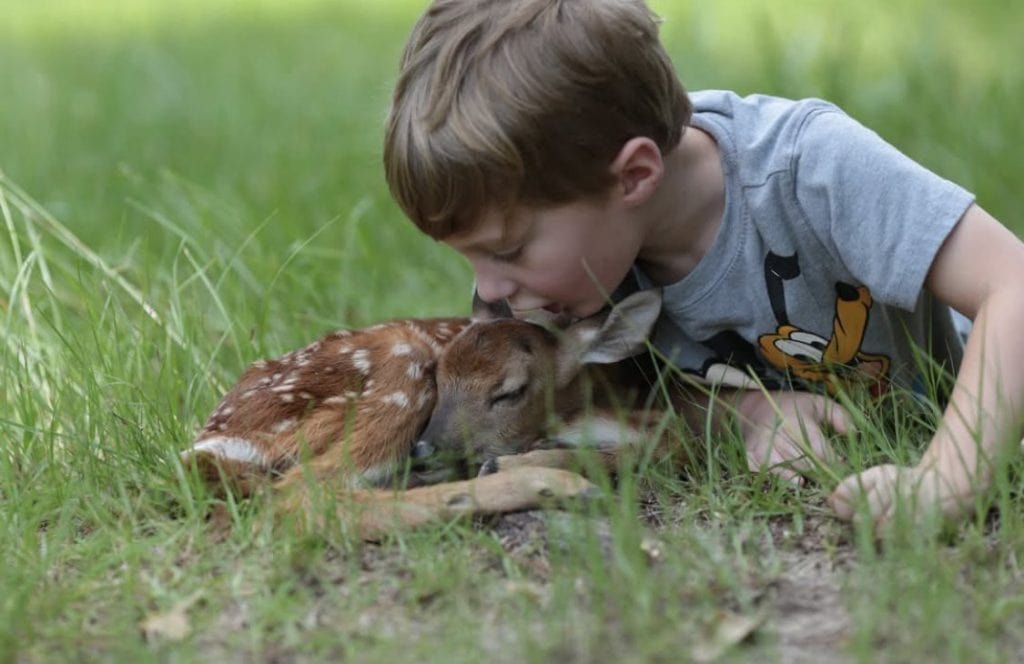
For nearly seven years, a gentle, blind deer named Little Buck lived a life that was anything but wild.
His story began in a Baton Rouge garden, where he was found alone as a fragile fawn, struggling to survive.
That’s when the Sibley family stepped in. They bottle-fed him, sheltered him from storms, and gave him the kind of care one might give a cherished pet.
Over time, Little Buck became more than just an animal in their yard — he became a constant presence, a quiet companion whose trust was unshakable.
A Beloved Deer’s Life Ends in Heartbreak
Although he could have wandered off at any time, he never did. The world outside their property might have been open to him, but he chose to stay.
Children who visited often saw him as something magical — a living storybook character who let them get close, who stood still for gentle pets, and who seemed to understand that this was his home.
Then, in December, everything changed.

An anonymous tip was made to the Louisiana Department of Wildlife and Fisheries (LDWF). The report claimed there was a deer living on the Sibley property.
When officials arrived and saw Little Buck inside a fenced area, they viewed the situation not through the lens of compassion but through the rigid language of state law.
That moment marked the beginning of an ordeal the family never saw coming.
The Day Everything Fell Apart
Louisiana law is clear: no one may keep native wildlife without special permits.
It doesn’t matter if the animal was rescued, cared for, or unable to survive alone.
When the officers explained this, they also handed over a citation that carried serious weight — thousands of dollars in fines, criminal charges for possession of a wild quadruped, and even restitution costs.
For the Sibleys, the paperwork was nothing compared to what came next.

LDWF officers told them they were taking Little Buck. On what should have been a joyful morning before a holiday gathering, their young son was pulled away from the cartoons he was watching to say goodbye to his deer.
The scene was burned into their memory. Little Buck lay quietly in his bedding area, calm and trusting, unaware of the fate that awaited him.
He stayed there for about twenty minutes, as if waiting for a familiar hand to scratch his neck or offer him a treat.
Then came the tranquilizer dart. Moments later, he was gone.

There was no chance to fight for him, no last-minute compromise — only an aching sense that something deeply wrong had just happened.
The Sibleys say it felt like losing a family member. There was no comfort in the fact that the process followed the law.
For them, this was not about legal definitions but about love and loyalty, about a bond formed over years that ended in the space of a single morning.
Voices of Anger and Support
In the days that followed, the family spoke to anyone who would listen.
They could not understand how giving a blind deer a safe, happy life could be treated as a crime.
They questioned why their quiet act of kindness had been condemned while other examples of keeping animals in captivity were celebrated — pointing to places like LSU, where Mike the Tiger lives in an enclosure and is part of school tradition.
They were not alone in their frustration.
State Representative Lauren Ventrella, known for her work expanding wildlife rehabilitation rules, called the situation “absolutely shocking.”

Earlier in 2025, she had helped pass a bill that allowed certain species — such as squirrels, skunks, opossums, raccoons, rabbits, and chipmunks — to be legally rehabilitated.
But deer had not been included, and Little Buck’s story became a painful example of the gap in those protections. Ventrella has already stated her intention to introduce new legislation to cover cases like his, where an animal is free to move but chooses to stay.
Then came a twist that added even more complexity to the story.
Prosecutors ultimately decided not to pursue the criminal charge. The fines were dropped.
On paper, the Sibleys were cleared. But this decision brought no joy. Little Buck had still been taken and killed, and nothing could bring him back.
For the family, the real injustice was not the citation, but the loss of the animal they had loved for nearly a decade.
A Loss That Demands Change
The story of Little Buck has sparked conversations across the community and beyond.
Many believe that wildlife laws, while necessary for conservation, must be updated to consider unique situations where compassion and common sense should prevail.
Others have called for programs that would allow animals like Little Buck to be evaluated for permanent sanctuary instead of being destroyed.
The Sibleys say they would do it all over again, even knowing how it ended, because they believe giving him a life of love was worth it.
But they also hope no other family has to experience the heartbreak they endured. Little Buck’s story, they believe, should be the start of change — a reminder that sometimes, the laws meant to protect wildlife can cause the very harm they aim to prevent.
